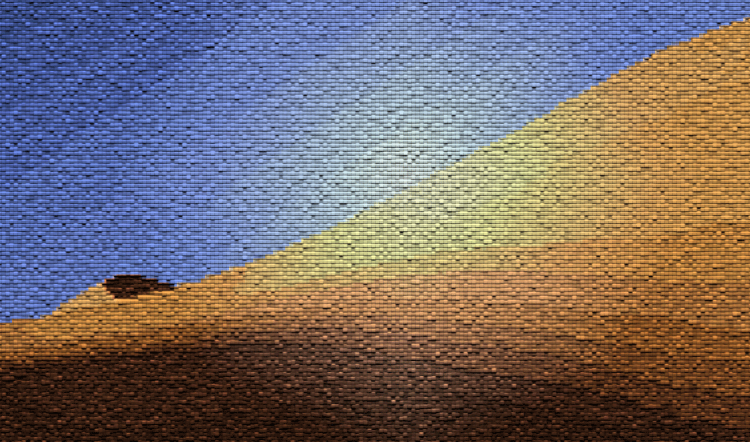Attention to Detail
We are often reductive. We see forests. We see yards. We see crowds. We have to open our eyes, expand our vision, pay attention to the smaller details to see the trees, the blades of grass, the people moving about in a crowd. In return, we are granted deeper insights into all things and have more colors and ways with which to describe things.
It’s far more interesting for a stranger to mosey over with a hitch in their step and a gleam in their eye than to say an outlaw approaches you. There are also assumptions being made in the latter. Start with the general in a description and then move to the specific, unless a specific is the first thing to which you wish to draw attention.
Let’s contrast the following scenario from two similar, yet distinct, approaches.
A lady leans against a piano. She is in a ruffled red dress, a platinum pendant adorns her neck, and she bears a jagged scar across her right cheek. At first glance, it appears faded, but it is buried under layers of powder and foundation yet still can be seen.
A lovely lady with a curious scar upon her right cheek leans against a piano. Her red dress seeks to draw your eye from the jagged slash across her face, one that cannot be hidden with makeup, only time. This wound is fresh, maybe a few months old at most. Her eyes are cool, defiant, and you doubt the small pearl handled gun hanging upon her waist is merely for show.
Same song. Different tune.
Focusing on the particular. Diving into a specific can create a ripple effect in the imagination. You’d think a broad generalization would suffice, but it tends to water down the impact of a statement. Rather than saying the neighborhood is squalid, give a specific. For example, as you exit the car and close the door, you hear it echo in the quiet. Somewhere a cat, no a large rat, skitters away. You see a figure, broken and homeless, hunched over a trash can, picking through garbage, looking for something to eat. They barely glance up as you walk past. They stink of rotting flesh and broken dreams and their stench lingers in your nose, your clothes, long after you’ve made your way up the rickety stairs to apartment 2C, the place you currently call home.
Suggest something. As you know, I like to contrast contrasts too, so imagine if you just provide the barest outline, and let your reader’s imaginations fill in the gaps. This works as well. For example, let’s retool our last example. You exit your car. The street is empty, quiet. You ever have those pauses in conversation with someone and the air is full of silence and potential, like the universe is holding it’s breath? It’s like that. And then you walk past a turned over garbage can. Certainly, you’ve let something in the fridge go bad, right?, this is like that, but worse. The smell sticks to you like some sick film upon your skin that only a shower and diligent scrubbing can get rid of, but the shower in the apartment you call your home can only offer up a weak drizzle.
Same song. Different tune.
What you choose to emphasize is as important as how you choose to emphasize it. This comes with practice. At first, it may seem it can only be written in one way which can be perceived as the best way. This is not always the case, yet it is important to get those words out to clear your mind, so you can observe things with unencumbered clarity.
Think wisely. Write well.
Until next time, I bid you, dear reader, adieu.
